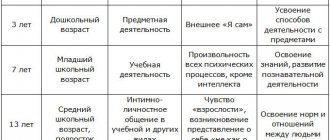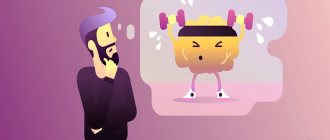Your life is filled with events, contacts with people, personal activities and activity. All this together fills your consciousness and forms a certain perception and internal assessment of what is happening.
Photo by Anastasia Shuraeva: Pexels
To be more precise, people, without exception, give some assessment to the events in which they are involved. Some find the reasons for what is happening in external factors, while others look for the reason within themselves. In psychology, this process is defined as a locus of control, which denotes the broad concept of a person’s responsibility for the result of his own activities.
Based on this definition, two types of locus of control were identified. Some transfer responsibility for the results of their activities to the outside world and factors, while the second type of personality takes responsibility for themselves.
In this article:
What is locus of controlCharacteristics of internal personality typeCharacteristics of external personality typeWhy know your locus of control
What is locus of control
To put it in simple terms, the locus of control is the internal vector of focusing one’s attention and focusing on an external or internal factor.
The external factor is the world around us, people’s actions and circumstances, while a person considers his own abilities, knowledge, experience and behavior to be internal.
Based on this interpretation, there are two types of locus of control:
- External locus of control. Focus on external factors.
- Internal locus of control. Focus on internal factors.
These two personality types have parallels with extroverts and introverts. When some people direct all their activity and essence towards the world around them, they are extroverts, while introverts withdraw into themselves and their thoughts, their focus is directed exclusively at their own feelings, sensations and emotions. But to say that the locus of control corresponds to both the extrovert and introvert personality types will be incorrect.
Locus of control can change, but not significantly; as a rule, people have mixed types of locus of control. It is almost impossible to meet one of the personality types in its pure form in your life; each person has a certain percentage of both types of locus of control, but one, nevertheless, is predominant.
The first to put forward this theory of locus control was the American scientist Julian Rotter. He conducted many experiments and was able to scientifically prove the theory of two locus of control, external and internal personality types.
Characteristics of the internal personality type
People with external locus control have certain personality characteristics, which are manifested in the following:
- An individual with such locus of control is characterized by high balance and self-control.
Locus of Control Rule
- Tendency to introspection and reflection. He is able to adequately assess his abilities and personal characteristics.
- Understands and is aware of what positive and negative qualities he has.
- Such a person has inner confidence that he can influence the course of events in a given situation.
- They are distinguished by perseverance and perseverance in achieving their goals.
- They make plans based on their own strengths and desires.
For example, consider the following situation: A person attended a job interview and for certain reasons did not pass. As a result, he will analyze this situation, identify mistakes on his part and draw appropriate conclusions in order to avoid similar problems in the future.
Such a person takes responsibility, he will not give up, but will confidently continue his path.
It’s worth adding a fly in the ointment to such an ideal portrait of an internal, which nevertheless has negative qualities:
- Depending on the character and temperament of a person, he may have a tendency towards self-flagellation.
- Excessive self-examination and search for mistakes in one’s own behavior or actions. In fact, not everything always depends on a person’s abilities; external factors can still interfere with his plans.
- It is impossible to keep everything under control all the time; over time, this causes internal exhaustion and fatigue.
The internal locus of control is still more positive and effective, since a person takes responsibility for his life and his activities.
Internals and externals
One of the most important characteristics of a person is the degree of independence, independence and activity of a person in achieving his goals, the development of personal responsibility for the events that happen to him.
Methods for studying the degree of independence were first developed in the 1960s in the USA. The most famous is D. Rotter's locus of control scale. This scale is based on the fact that people differ among themselves in where they localize control over events that are significant to them.
There are two possible locus of control options and, accordingly, two types of people:
- externals (external locus of control) - a person believes that the events that happen to him are the result of the action of external forces, chance, circumstances, other people, etc.;
- internals (internal locus of control) - a person interprets significant events as the result of his own efforts.
Internals
Internals believe that most of the important events in their lives were the result of their own actions, and they feel their own responsibility for these events and for the way their lives turn out in general. They believe that they themselves have achieved all the good things that have happened and are in their lives, and that they are able to successfully achieve their goals in the future. But they take responsibility for all negative events and tend to blame themselves for failures, troubles, and suffering.
Such people consider their actions to be an important factor in organizing their own production, in developing relationships in the team, and in their advancement. The internal considers itself responsible for the events of family life, blames not the spouse for family problems, but first of all itself, and strives to change itself.
A person with an internal locus of control considers himself capable of controlling his informal relationships with other people, arousing respect and sympathy for himself, and actively forming his social circle. Internal considers himself largely responsible for his health. He blames himself for the illness and believes that recovery largely depends on his actions, and not on the doctors.
Thus, the internal is characterized by an active life position, independence and responsibility for oneself.
Externals
People with an external locus of control, externals, on the contrary, are more often passive, pessimistic, they feel that nothing depends on them, everything depends on circumstances, and they are pawns in this life.
A person does not take seriously his role in certain events in his own life, in the way his relationships with other people are built, and most often blames his partner for conflicts.
Externals attribute even their successes, achievements and joys to external circumstances, luck, good fortune, the will of God or the help of other people.
The result of this position is passivity, a lack of desire to achieve one’s goals.
Special studies have shown that internals, oddly enough, are “luckier” than externals. They suffer less from psychological problems, they are more successful in life, they are optimistic and productive. Unlike internals, externals, on the contrary, face a large number of psychological difficulties, failures are their “strong point”, they constantly fall into a pessimistic mood and more often than others commit suicide.
And, in fact, a test for locus of control
And yet, which is better? Which is better? If we consider the work aspect, it is better if the internal locus of control prevails among subordinates. And they admit their mistakes and know why they get paid. In this sense, it is more difficult with externalities - for him, circumstances are to blame for everything. Internals are more responsible, more thoughtful, and, accordingly, the result of their work is more predictable. And if in life, then it’s probably less expensive to be external. Less worry, less guilt. Although, it is better, of course, to be in the middle. So that you could be responsible for mistakes, you could be lucky, and the feeling of guilt would not be particularly burdensome.
Collected piece by piece in the vastness of the RuNet
Features of the external personality type
The external personality type is distinguished by the following characteristics:
- The main feature of externality is lack of confidence in one’s own strengths and abilities.
- There is no responsibility for one's activities.
- A person feels insecure and anxious, and is unable to make plans and set goals based on their own capabilities and abilities.
- When constructing goals, externals are guided by the past; their memories are of great importance to them. All plans and goals of this type of people remain conditional, since life, in their opinion, will still make its adjustments.
- Tendency to blame and shift responsibility onto strangers and external circumstances.
An excellent example of external behavior would be the following situation: A student failed an exam, and for what happened he will blame not himself, but the teacher or the commission. He will definitely find reasons in external factors that did not allow him to cope with the task.
A negative feature of the external type of locus of control is the obsessive thought that he himself does not decide anything in his life, and if he finds himself in unresolved situations, he does not take special actions, but simply obeys the flow of events.
Why Know Your Locus of Control
Knowing your dominant locus of control will be useful, as it will give you the opportunity to work on yourself and change for the better. Thanks to self-knowledge and self-improvement, a person can change his life, achieve greater success and transform his weaknesses into stronger and more effective ones.
Psychologists believe that it is worth developing a balance of both types of locus of control. It will be useful to adhere to the following recommendations when working on yourself:
- It is important to take responsibility for what is happening and not blame other people for the results of your own activities.
- It is important to assess the degree of your own responsibility.
- When failures occur, it is worth reporting and analyzing the situation. There is no need to rush to the extreme of self-flagellation or, on the contrary, blame others for what happened.
- There is no need to take on many responsibilities; it is impossible to control everything at once. You should trust your own intuition and reduce anxiety.
- Having received the result of your own activities, you should not rush to conclusions. It is necessary to analyze the situation and draw appropriate conclusions based on the position of both locus of control.
Self-development is possible with regular work on yourself. Achieving harmony in your relationship with other people and with yourself is not difficult, you just have to approach this issue competently.
Why know this?
What practical meaning can be derived from this knowledge? Indeed, at first glance it may seem that the theory is informative and interesting, but nothing more. In fact, determining your locus of control and reconsidering your attitude towards what is happening to you is a powerful tool for self-development.
A superficial analysis can be carried out even without seeking help from the mentioned questionnaires and tests based on them on the Internet. Just try to look at yourself from the outside and evaluate your attitude towards what happened in the near future. For example, you received a D on a test or your boss yelled at you for doing a bad job. What were your next steps? Did you conscientiously learn everything and correct mistakes in your work, because what happened was your fault? Or, cursing the teacher and boss for bias and injustice, did what was necessary “under the lash” just to be left alone? Of course, such options are not mutually exclusive, but in other cases they are less clearly related to locus of control.
Thus, by choosing the right series of questions and answering them honestly, you will receive a ready-made map that can indicate in which direction you should move next and which skills and qualities of your character to develop and which to get rid of. Expressed externality indicates that you need to learn to take responsibility, be more confident and proactive. Establish observation of yourself and everything that happens, learn to see your trace, and not just a coincidence.
Internals should ask themselves similar questions. Their reaction to a shift in locus should be to refuse to control things that do not need control. It is worth recognizing that it is impossible to foresee absolutely everything, much less influence it. Therefore, reproaching yourself every time something goes wrong is a stupid idea and promises depression. Seek harmony!









